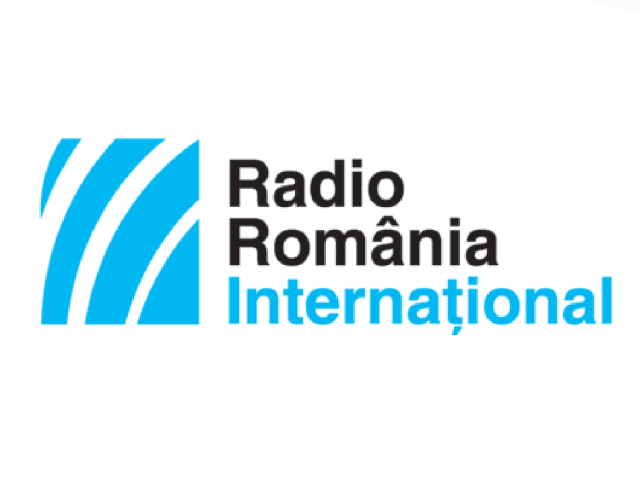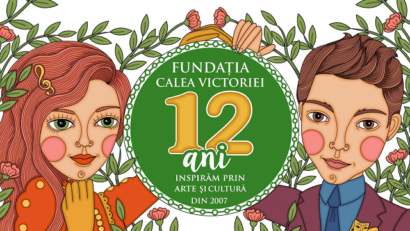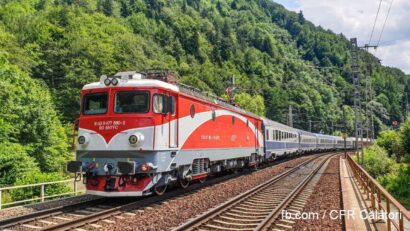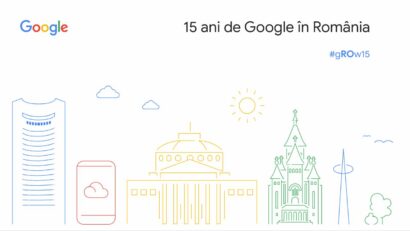The Virtual Cafe
Artists created right from the beginning of this social distancing period a way to socialize on-line: the Virtual Cafe

Ana-Maria Cononovici, 28.04.2020, 14:15
If you miss going out for a chat with friends, you are definitely not alone. But, since some artists feel better in isolation, they created right from the beginning of this social distancing period a way to socialize on-line: the Virtual Cafe.
Roxana Donaldson, writer and fine artist, told us about it: “The Virtual Cafe started off with the attempt to maintain open communication. It is a difficult moment, a moment of maximum isolation, real space has shrunk very much, but the virtual space has dilated at warp speed. It now offers the possibility of holding on to the world as it was before somewhat. My friends and I in the Virtual Cafe thought it was the right moment to fill somehow this dilated space, keeping in touch digitally. We thought of a cafe because we are all social people, because we need conversation, because people go to a cafe to exchange ideas. There is an old tradition of the art cafe, of the exchange of ideas, of intellectual communication. And I believe this is what we are trying to do.”
Anyone who is interested can visit the cafe, Roxana Donaldson told us: “Each one of us is from a different area: visual arts, literature, business, freelancing, marketing and PR, we have a good diversity of people in the cafe, united by the wish to communicate, and also to keep things standing upright. Each one of us, in each edition, talks about things they are passionate about. They bring up topics for discussion, they bring in a guest, they launch questions. Our cafes are open to anyone who wants to take part in events, they are free of charge, they can be followed on our Facebook pages, people can keep in touch on social media, they can listen, they can ask questions, we can communicate, to breathe freely a bit.”
Roxana then told us about the beginnings: “The first topic, the first discussion was about the limitations of the digital, about remote schooling, about remote working, because this topic emerged right at the start of the isolation period. So this virtual cafe started with questions and answers relevant to how each one of us deals with it, and how we like the digital at first taste, considering that the digital is the only means of communication. It is an emergency solution, it is imperfect, it allows us to go on in some way, to not stop in our tracks, but I believe that the digital, at least at this moment, has revealed its limitations. We understood what we could do in the digital, but that things will be fundamentally different from what reality is, and that, in order to function long term in the digital, we will somehow find superior ways to use it. I think that as long as the digital remains an emergency solution, it will not develop to its maximum potential. The bright side is that we learned on this occasion that it works this way too.”
Even though it is clear that this move into the virtual environment took everyone by surprise, the alternative of meeting in a virtual cafe was to the participants liking, as Roxana Donaldson told us: “We did like it. After that, we had that meeting where we invited Axel Mustas, actor with the National Theater and leader of an improvisation troupe, who talked to us about what it means to be and actor and not be able to act right now. It was very interesting, because we actually had an improv exercise on-line, and it worked, it was great, and it offered us the possibility to put ourselves in his shoes. Generally, when we go through crisis periods, each of us thinks about how it affects them. When you have the possibility of seeing things with different eyes, you appreciate on a more real level what is going on, and how deep these changes are in all social domains.”
Another topic was Perfect Strangers: Isolated between real and digital, perfect strangers linked by virtual synapses, we are trying to hold on. A discussion about art, projects, corona, archives, photos, and memories. Invited to the event was Cristina Irian, president of the Omnia Photo Association, who recalled it for us: “I was a guest of this cafe, and my initial role was that of telling them about what we do with our association and photo archives. The very name of our association, I was telling the colleagues in the cafe, comes from the names of two photo studios that ran between the wars in Romania. I and my colleague from Craiova, Dorin Delureanu, found, on our own, a series of old photographs from the 30s and 40s. He found Photo Omnia Craiova, I found Photo Omnia Bucharest, and we started to ask ourselves questions about these lesser known studios. Hence the idea of this association, where we try to recover archives, photographs, private photo collections, lesser known for most people.”
The virtual cafe plans to meet once a week, and the participants plan on remaining interconnected even after were no longer stuck at home. So all that is left is to launch an invitation for you to join the project, on the Brand Trainers Virtual Cafe page.
CC






























